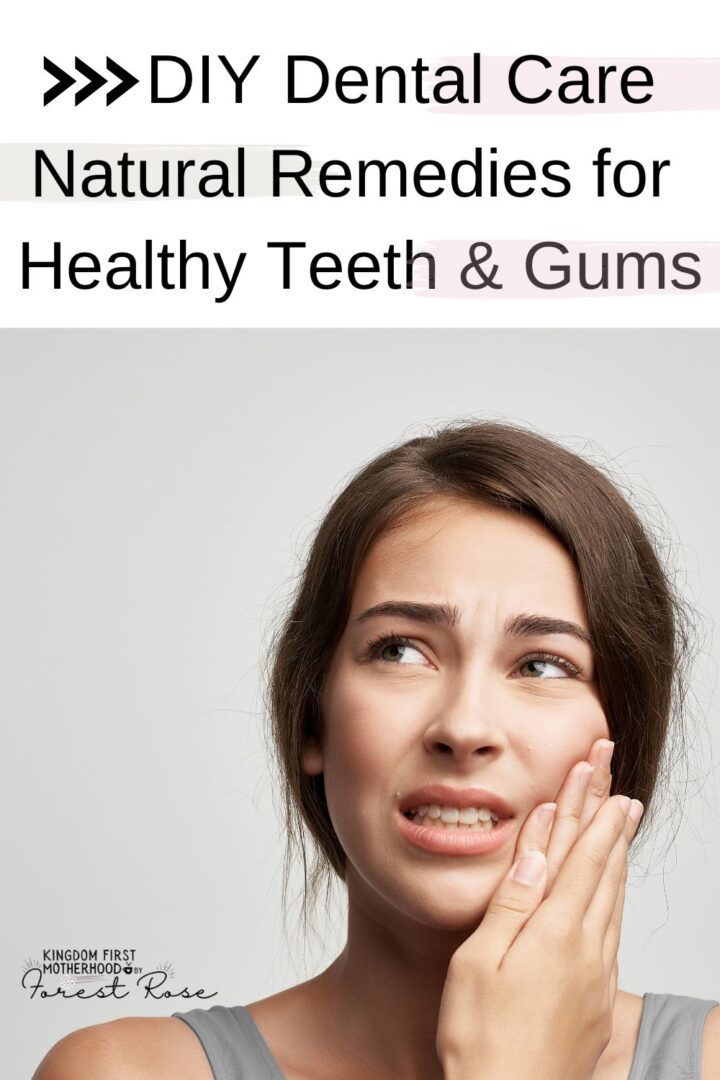Dental problems can creep up unexpectedly, causing discomfort and anxiety. Whether it’s a nagging toothache, sensitivity, or swollen gums, the fear of undergoing procedures like root canal treatment can be daunting. Many people seek natural remedies to manage their dental care before opting for extensive dental work.

In this article, we’ll explore effective DIY dental care solutions, their benefits, and when to seek professional help. While these methods can support oral hygiene, they should not replace professional dental care.
Contents
- 1 Understanding Common Tooth Troubles
- 2 Natural DIY Remedies for Dental Issues
- 2.1 1. Saltwater Rinse – A Natural Disinfectant
- 2.2 2. Clove Oil – A Powerful Pain Reliever
- 2.3 3. Hydrogen Peroxide Rinse – Fight Infection
- 2.4 4. Turmeric Paste – A Natural Anti-Inflammatory
- 2.5 5. Green Tea – Strengthening Enamel
- 2.6 6. Baking Soda – A Natural Whitener
- 2.7 7. Oil Pulling – An Ancient Detoxifier
- 2.8 8. Hydroxyapatite Toothpaste – Strengthen and Remineralize Enamel
- 2.9 9. Xylitol – A Natural Cavity Fighter
- 2.10 10. Aloe Vera – Soothing Relief for Gums
- 2.11 11. Probiotics – Balancing Oral Bacteria
- 2.12 12. Licorice Root – A Natural Antibacterial
- 2.13 13. Vitamin D – Essential for Strong Teeth
- 2.14 14. Myrrh – A Natural Gum Healer
- 2.15 15. Homeopathic Remedies for Dental Health
- 2.16 How to Use Homeopathic Remedies for Dental Health:
- 3 When to See a Dentist?
- 4 FAQs
Understanding Common Tooth Troubles
Before diving into remedies, it’s crucial to recognize the symptoms of common dental problems. Addressing these early can help prevent severe issues like root canal treatment.
1. Tooth Sensitivity – Why Do My Teeth Hurt?
Tooth sensitivity is a sharp pain triggered by hot, cold, sweet, or acidic foods. It’s often caused by:
- Enamel erosion
- Receding gums
- Cavities or cracked teeth
2. Toothache – A Sign of a Bigger Problem?
A persistent toothache might be due to:
- Tooth decay
- Gum infections
- An abscess that might require root canal treatment
3. Bleeding Gums – Should I Worry?
If your gums bleed while brushing or flossing, it might indicate:
- Gingivitis (early-stage gum disease)
- Poor brushing habits
- Vitamin deficiencies
4. Bad Breath – More Than Just Embarrassing
Chronic bad breath (halitosis) can be linked to:
- Poor oral hygiene
- Bacterial buildup
- Dry mouth
Natural DIY Remedies for Dental Issues
1. Saltwater Rinse – A Natural Disinfectant
Saltwater is a well-known home remedy that helps with infections and swelling.
- Mix 1 teaspoon of salt in a glass of warm water
- Gargle for 30 seconds
- Repeat twice a day
This can prevent bacterial growth and may even help delay the need for root canal treatment.
2. Clove Oil – A Powerful Pain Reliever
Clove oil contains eugenol, which has natural pain-relieving and antibacterial properties. It can numb tooth pain and reduce inflammation, great for dental care.
- Apply a small amount of clove oil to a cotton ball
- Place it on the affected tooth for a few minutes
If you don’t have clove oil on hand, you can also suck on a whole clove (yes, the spice at your grocery store) to release its natural oils gradually. Simply place a whole clove near the sore tooth and gently bite down to release the pain-relieving compounds. Let it sit for a few minutes before spitting it out. This traditional remedy can provide temporary relief until you can address the underlying issue.
3. Hydrogen Peroxide Rinse – Fight Infection
Hydrogen peroxide is effective in reducing bacteria in the mouth.
- Mix equal parts of 3% hydrogen peroxide and water
- Swish for 30 seconds, then spit out
Avoid swallowing, and use this remedy no more than 2-3 times a week.
4. Turmeric Paste – A Natural Anti-Inflammatory
Turmeric contains curcumin, which helps reduce inflammation and pain.
- Mix turmeric powder with a little water to form a paste
- Apply it to the affected area
- Leave for 5-10 minutes before rinsing
5. Green Tea – Strengthening Enamel
Drinking unsweetened green tea can:
- Reduce gum inflammation
- Strengthen enamel
- Prevent bacteria buildup
6. Baking Soda – A Natural Whitener
Baking soda helps remove plaque and neutralize acids in the mouth.
- Mix baking soda with water to form a paste
- Brush gently with it twice a week
7. Oil Pulling – An Ancient Detoxifier
Oil pulling is a traditional remedy that helps reduce bacteria and improve oral health. It can also support gum health, dental care and freshen breath.
- Swish 1 tablespoon of coconut oil (or sesame oil) in your mouth for 10-15 minutes
- Spit it out (do not swallow)
- Rinse with warm water and brush as usual
Regular oil pulling may help reduce plaque and prevent gum disease over time.
8. Hydroxyapatite Toothpaste – Strengthen and Remineralize Enamel
Hydroxyapatite is a naturally occurring mineral that helps rebuild and strengthen tooth enamel. Unlike fluoride, it works by replenishing lost minerals in a way that mimics the structure of your teeth.
- Use a hydroxyapatite-based toothpaste instead of traditional fluoride toothpaste
- Brush twice a day for optimal remineralization
- No need to rinse immediately after brushing—let the hydroxyapatite work its magic!
This toothpaste is a great option for those with sensitive teeth, cavities, or enamel erosion, offering natural protection without harsh chemicals.
9. Xylitol – A Natural Cavity Fighter
Xylitol is a naturally occurring sugar alcohol that helps prevent cavities by reducing harmful bacteria in the mouth and promoting saliva production. Unlike regular sugar, it doesn’t feed decay-causing bacteria.
- Use xylitol-sweetened gum or mints after meals to help neutralize acids
- Opt for toothpaste or mouthwash containing xylitol for extra protection
- Aim for 5-10 grams of xylitol per day for maximum benefits
Regular xylitol use can help reduce plaque buildup, strengthen enamel, and keep your breath fresh—all while satisfying your sweet tooth in a healthier way!
10. Aloe Vera – Soothing Relief for Gums
Aloe vera has natural anti-inflammatory and antibacterial properties, making it great for soothing irritated gums and fighting bacteria.
- Apply fresh aloe vera gel directly to the gums and let it sit for a few minutes
- Use aloe vera juice as a mouth rinse to reduce gum inflammation and bacteria
- Repeat daily for gum health and fresh breath
11. Probiotics – Balancing Oral Bacteria
Probiotics aren’t just for gut health—they also help balance oral bacteria, reducing bad breath, preventing cavities, and supporting gum health. A well-balanced oral microbiome can protect against harmful bacteria that contribute to tooth decay and gum disease.
- Eat probiotic-rich foods like yogurt, kefir, and sauerkraut
- Consider probiotic lozenges or supplements designed for oral health
- Use probiotic toothpaste to introduce beneficial bacteria directly to the mouth, helping to restore balance and support enamel strength
Incorporating probiotics into your daily routine can promote a healthier mouth while naturally reducing the risk of cavities and gum issues.
12. Licorice Root – A Natural Antibacterial
Licorice root contains compounds that fight cavity-causing bacteria and reduce plaque.
- Use a soft licorice root stick as a natural toothbrush
- Look for herbal toothpastes containing licorice root extract
- Avoid heavily processed licorice candy, as it often contains sugar
13. Vitamin D – Essential for Strong Teeth
Vitamin D is crucial for calcium absorption, which strengthens teeth and prevents decay.
- Get 10-30 minutes of sunlight exposure daily
- Eat vitamin D-rich foods like fatty fish, egg yolks, and fortified dairy products
- Consider a vitamin D supplement if your levels are low
14. Myrrh – A Natural Gum Healer
Myrrh has been used for centuries to support oral health due to its antiseptic and anti-inflammatory properties.
- Use a myrrh tincture diluted in water as a mouth rinse
- Apply a drop of myrrh essential oil to swollen or irritated gums
- Combine myrrh with clove oil for extra pain relief
15. Homeopathic Remedies for Dental Health
- Arnica Montana – Great for reducing pain, swelling, and bruising after dental procedures or tooth extractions.
- Chamomilla – Often used for teething babies or adults experiencing severe tooth pain that feels unbearable.
- Calcarea Phosphorica – Supports strong teeth and bones, commonly used for growing children or those prone to cavities.
- Hypericum – Helpful for nerve-related tooth pain, especially after dental surgery or injury.
- Mercurius Solubilis – Used for gum infections, excessive saliva, and bad breath.
- Silicea – Supports healing of abscesses or slow-healing wounds in the mouth.
How to Use Homeopathic Remedies for Dental Health:
- Dissolve homeopathic pellets under the tongue as directed on the package.
- Choose a potency like 6C or 30C, depending on the severity of symptoms.
- Use remedies consistently for short-term relief but seek professional help for ongoing dental problems.
Homeopathy can be a gentle way to support oral health, but it’s always good to combine it with proper dental hygiene and checkups.
When to See a Dentist?
While these DIY remedies are beneficial, some situations require professional intervention. You should visit a dentist if:
- Tooth pain persists for more than a few days
- Swelling or fever accompanies a toothache
- A cracked or chipped tooth causes sensitivity
- A cavity worsens despite home care
Maintaining oral health doesn’t always require expensive treatments. Natural remedies can be powerful in preventing common dental issues. However, recognizing when professional care is necessary is crucial. Early intervention can save you from extensive procedures like root canal treatment.
By following these DIY dental care tips, you can enjoy healthier teeth and gums while avoiding unnecessary pain and costly treatments. Stay proactive, and your smile will thank you!

FAQs
Can a Tooth Heal Itself Without a Root Canal Treatment?
No, once decay reaches the pulp, professional treatment is necessary. Home remedies can manage symptoms but won’t reverse deep decay.
Is Charcoal Toothpaste Safe for Everyday Use?
Charcoal toothpaste can remove stains, but excessive use may erode enamel. Limit its use to twice a week.
Can Oil Pulling Replace Brushing?
Oil pulling with coconut oil can help reduce bacteria but should not replace brushing and flossing.
How Can I Avoid Root Canal Treatment Naturally?
Maintaining good oral hygiene, avoiding excessive sugar, and addressing minor dental issues early can help prevent the need for root canal treatment.
What Foods Strengthen Teeth?
- Dairy products (calcium-rich)
- Leafy greens (high in vitamins)
- Nuts and seeds (phosphorus and magnesium)
- Crunchy fruits and vegetables (natural cleansers)
For more homeschooling inspiration, tips and encouragement, make sure to follow KFH on Facebook, Pinterest, Instagram and Twitter, and subscribe to our Newsletter for some FREE GOODIES!
Forest Rose is a God Loving, Blessed Wife, & Mama to 3 girls. She’s passionate about lifting moms out of the trenches that are discouraged, overwhelmed, or feeling alone or isolated. Her hope is to point them to Christ and equip them to rise up with a newfound hope and joy within, that He alone can provide. Besides blogging, she also loves to create printables!




Leave a Reply